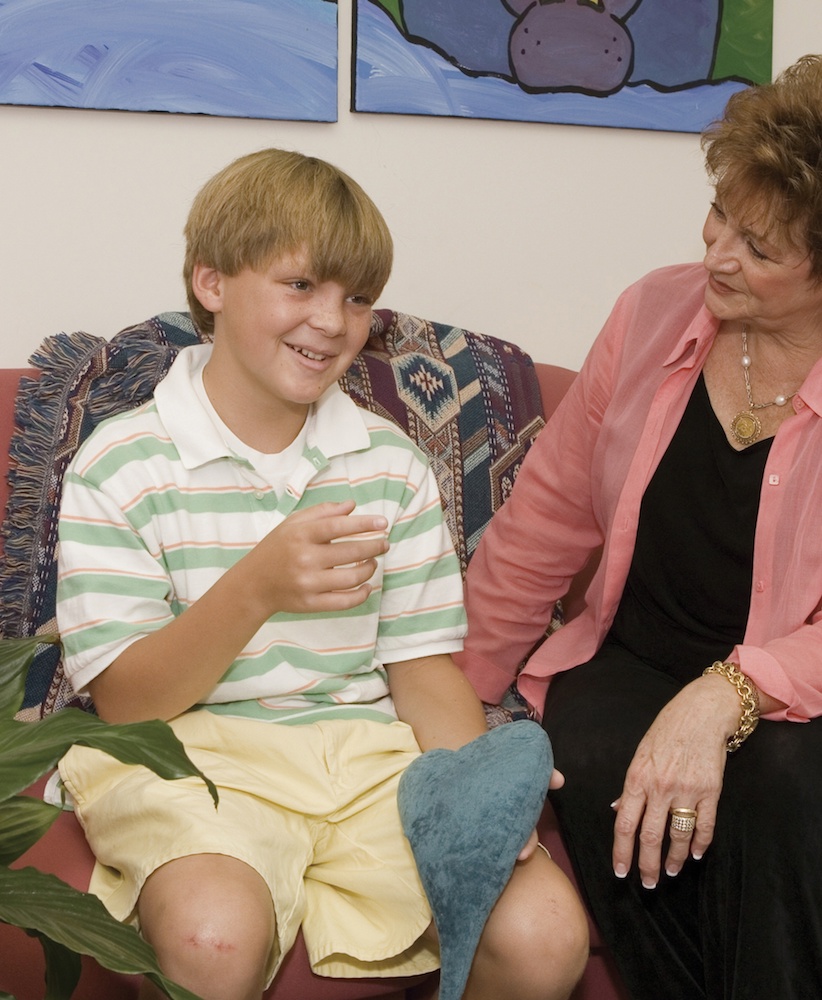Grief & Children
It is a startling fact that so many children and teens will lose a loved one so early in life when the need for love, guidance, and security is so acute. Many times, these children have no outlet for their grief and do not know how to express their feelings.
McClean Fletcher Center helps families journey through their grief to find healing and peace. It is a safe place that helps them integrate love, life, and loss into their daily lives.
The impact of losing a loved one crosses all cultural and economic boundaries. We understand that when a loved one dies, it is often a difficult time financially. The Center does not charge fees for its services. We rely on private individual donations, foundation grants, special events, and our annual Heartstrings Gala fundraiser.
To schedule an appointment, contact us at 601-206-5525 or submit our online contact form.

“Even the smallest of hearts may bear the heaviest burdens, and triumph.”
Understanding Grief in Children
Children and teens are often overlooked during times of grief and can feel especially isolated. McClean Fletcher Center’s grief support program focuses on the belief that every child and teen deserves the opportunity to grieve in a supportive, nurturing environment.
Grieving children and teens, ages 4-18, are offered a safe place in peer support groups, where they can interact with others who have experienced similar losses, learn lifelong coping skills, and, most importantly, begin a healthy healing process.
How to Help a Grieving Child
Parents and adults can help facilitate a child’s healing by providing support during the grieving process. An adult’s role should be to walk beside the child during their grief journey rather than to lead the child. Ways in which we can companion children are:
Be Honest
Tell the child the truth in terms that are appropriate to the child’s age. Do not keep secrets. Hearing the truth from a trusted adult rather than another child or acquaintance is far better. When a child asks questions about death, answer the question honestly and directly without discussing more detail than is needed.
Be Concrete
When talking with children about death, use words like “died” or “dead.” Avoid using euphemisms such as “expired,” “passed on,” or “went to sleep.” This only confuses children.
Be Consistent
Routines provide security for grieving children and help to diminish worry about what will happen in the future.
Provide Choices
Children often feel a lack of control in their lives when someone close to them dies. Allow children to choose how they want to participate in the funeral process.
Allow Yourself to Mourn
Children learn from their role models. If they see a parent or relative’s outward expression of feelings, then it makes it “okay” for them to express their own feelings.
Remember The Person Who Died
Encourage the child to talk openly about the person who died. Allow children the opportunity to choose from the possessions of the person who died, those possessions that are most meaningful to him/her.
Children are unique individuals with special grief needs. They have the natural ability to heal. Walking beside a child during their journey can facilitate hope, healing, and finally, peace.

Our Location
12 Northtown Drive
Jackson, Mississippi 39211
601-206-5525

